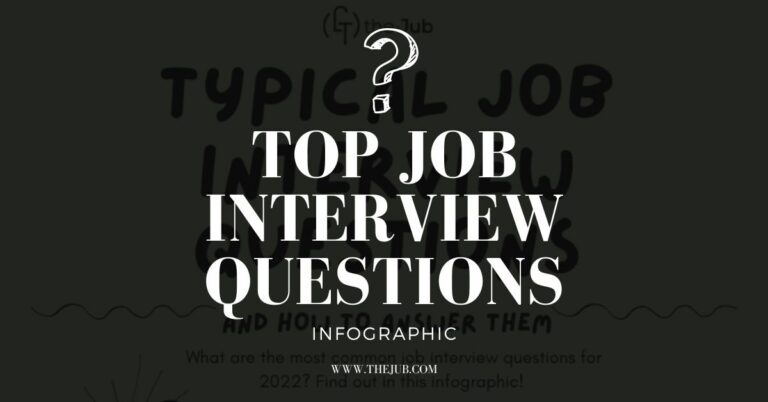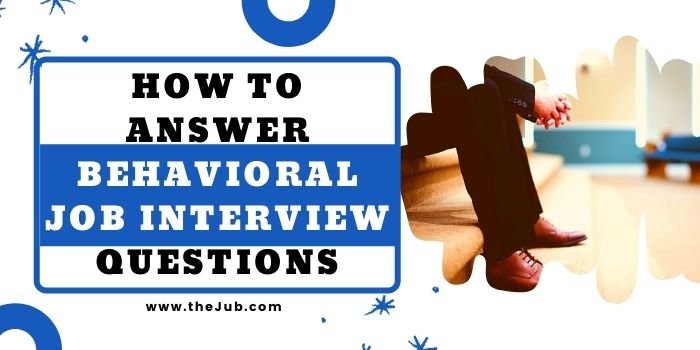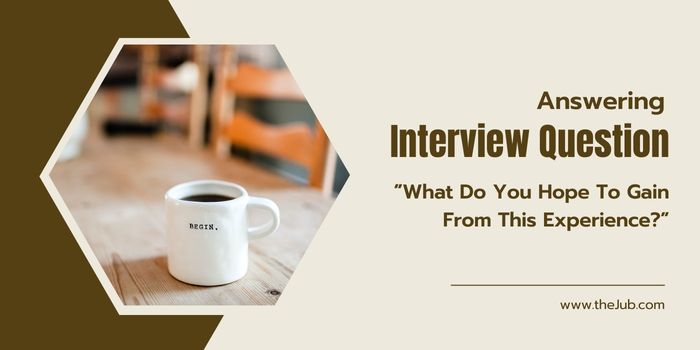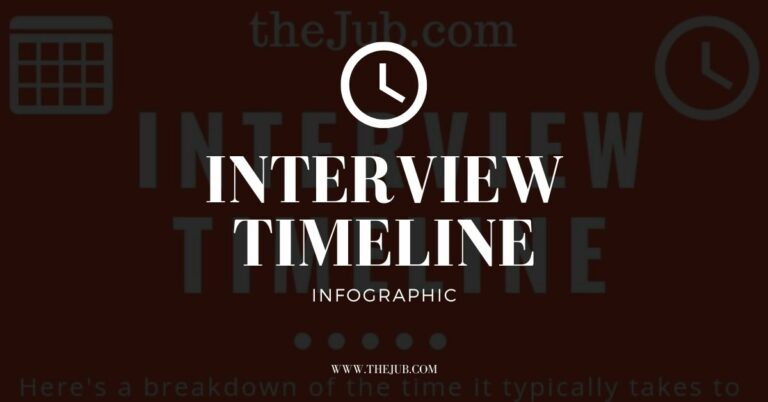7 Tips to Ace Your Panel Interview (with Example Questions and Answers)
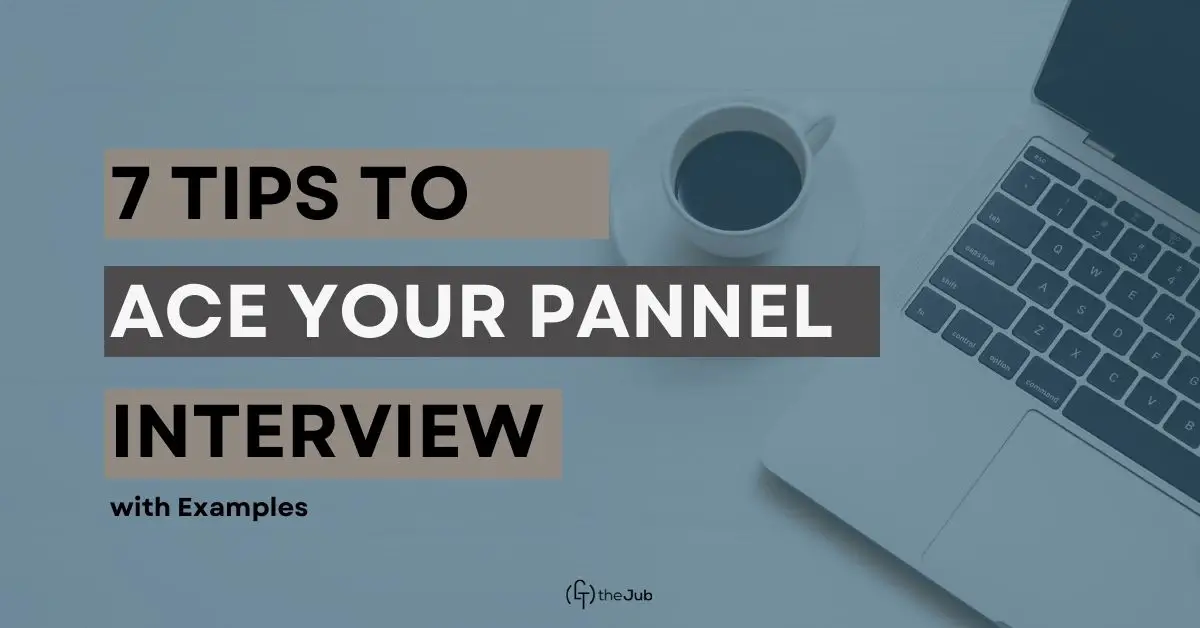
Panel Interview Preparation
Speaking to large groups of people can be scary, and while the panel interview format isn’t the “go to” interview strategy employers typically use, you still should be prepared in case this request comes up. Here are seven simple rules to help you get through a panel interview and land your dream job.
What is a Panel Interview? (definition)
A panel interview is when you’re interviewed by a group of employees or hiring managers within a given company. Several leading members of the team you’re applying to join will sit around and talk to you throughout the interview.
In most ways, it’s the same as a standard interview, with the only real difference being that you have to deal with several interviewers simultaneously.
These aren’t as common because the company has to get each interviewer on board or together at the same time, which is difficult in a fast-paced work environment.
Because of this, panel interviews are conducted almost exclusively when team members heavily rely on each other for significant reasons or must complete tasks as a unit. Other common uses for it are over high-ranking corporate positions.
Why Do Organizations Conduct Panel Interviews?
Organizations conduct panel interviews to maximize hiring efficiency and reduce the need for a large number of interviews.
These group interviews allow the hiring managers to assess a candidate in a team setting, saving everyone time during their busy days. Both the employer looking to hire and the candidate benefit from this type of interview format.
7 Tips and Tricks for Success in a panel interview
1. Prepare Before The Interview
If you think you can completely ignore that you have an interview coming up, waltz in at the last minute, and pull it off, you better be applying somewhere with low standards because that won’t work.
Most places aren’t going to be lenient if you come in babbling answers to simple questions and sounding unprepared.
This is true for any interview but is even more critical when it comes to a panel discussion.
Take time to research what to expect in this panel interview, what questions they might ask, and contemplate how you’ll respond. There’s no such thing as over-preparing when it comes to an interview, so do your homework before the big day.
2. Spread Your Attention Around
You’re not interviewing with just one person here. There will likely be a handful of them drilling you with questions and trying to determine whether or not you should get the job which is why you should look to be inclusive of everyone.
Some interviewers might be more dominant than others. You don’t want to steer the conversation away from their questions, but make sure you’re keeping eye contact with everyone, turning to them for input, and engaging with each person participating.
Leaving the quieter member of the panel out might be second nature, but it might bite you later. That person might speak up when they’re all reviewing the candidates for selection – if they felt ignored, they might very well express their concerns.
3. Be Ready to Answer Anything
When you’re in a one-on-one interview, there’s usually time between questions to gauge the interviewer’s response, think of what they’ll ask next, or collect yourself for the rest of the discussion.
In a panel interview, a group of individuals has put together a list of questions they are ready to drill you with. When you finish answering one, out comes another, leaving you with little to no break.
Be prepared to answer question after question without a pause. Simply practicing in front of the mirror can help you prepare for this rapid-fire approach to interviewing.
4. Stay Calm and Keep Positive
It’s not easily noticeable when picking at your fingers under the table or gently tapping your foot during a one-on-one interview. The interviewer is busy digesting your answers and taking notes during your quick discussion.
However, there is no chance you’ll get away with showing off your nerves in a panel interview. There are too many eyes and ears on you.
When they notice your nervous habits, they might start to second-guess your confidence and ability to handle stressful situations.
At the end of the day, it’s just an interview. The people you are speaking with are ordinary folks, and if this job opportunity doesn’t work out, there will be plenty of others to apply for down the line.
Hopefully, that reminder will help ease any nerves you have.
5. Pause When Needed
The interviewers will not stop asking questions that were highlighted earlier. However, that doesn’t mean you can’t buy yourself a little time to gather your thoughts.
When asked a question, don’t feel obligated to blurt out whatever comes to mind. Take a moment to breathe, organize your thoughts and then answer the question.
Not only will you answer with something more intelligent and worthwhile when you take your time, but you’ll look more professional too.
Just don’t take too long in your responses. If you space out or have extended periods of silence, they might start asking questions you don’t want to hear.
6. Be Patient with the Interviewers
You’re talking to several people at once during this discussion. At least one of them is bound to ask you to repeat yourself or interrupt when answering a question.
While that can be annoying, remember; they’re gauging whether or not you’re a good fit for the role and team. If you show little patience, they might assume you wouldn’t be a great team player or fun to work with.
Regardless of how the panel handles your interview, remain patient and positive. Those traits show well during the selection process.
7. Take Notes During the Interview
Finally, you want to take notes throughout the panel interview. This does three things. It gives you time to breathe and collect your thoughts, shows the panel that you’re interested in the role, and will help you improve for future interviews if this opportunity doesn’t work out.
“Although it varies depending on industry, most interviews last between 45 minutes and one hour. This should provide sufficient time and flexibility from both sides to get to know one another. But what works for one business may not work for you.”
— Reed)
Related Content
- 10 Most Common Job Interview Questions and Answers
- What Interests You About This Position Answers
- Popular Phone Interview Questions
Common Panel Interview Questions with Example Answers
While many of the typical one on one job interview questions apply here, a handful of questions are commonly brought up during a panel interview.
1. Tell Us About Yourself
Example Answer: “During my time with Google, I branched out from copywriting and grew more passionate about Social Media. I developed most of my paid ad and social copywriting experience through live training events where I tested at the top of my class.”
2. Why do you want to work here?
Example Answer: “I am interested in working for Target because of your dedication to the community and underserved groups. I’ve always been a big advocate of helping others, and I would love to be part of that on your team. Furthermore, the position aligns with my current skillset and career goals. It is a meaningful position that I would find very rewarding.”
3. Do you have any questions for us?
Example Answer: “What’s your favorite part about working at the company, and what does the work-life balance look like?
4. What is your greatest strength?
Example Answer: “As an HR Specialist over the last three years, I would say employee care is my greatest strength. My passion and dedication to the industry have led me to effectively resolve employee issues and understand them at a deeper level. One of my greatest strengths is my attention to detail. In my data entry work, I’ve always been careful to avoid errors by double-checking everything so that I don’t submit anything incorrect.”
Check out our list of the 101 most common interview questions.
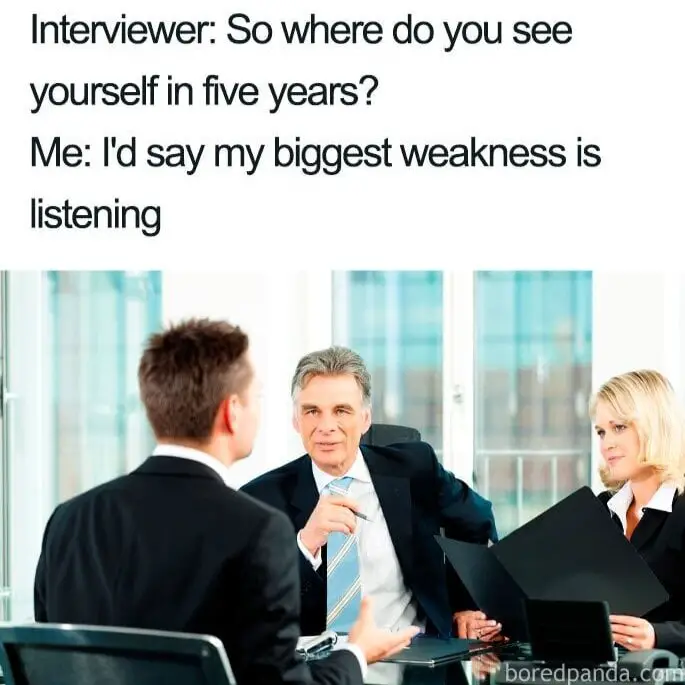
Frequently Asked Questions (FAQ)
Are panel interviews difficult?
Panel interviews are often considered more complex than your average interview due to the number of people you are required to speak with. Go into it with an open mind, and answer questions like any other interview.
How do you introduce yourself in a panel interview?
You can introduce yourself by providing the panel with a brief overview of where you are within your career and any relevant work experience related to the job you are applying for.
Does a panel interview mean you got the job?
No, just because you have received a request to join a panel interview doesn’t mean you got the job. While this is a good indicator they are interested in you for the role, they still need to vet your skills and decide if you meet their qualifications.
Wrapping Up | How to prepare for a panel interview
The main challenge when dealing with a panel interview is the ability to impress multiple people simultaneously. Knowing how to engage the interviewers and how to thank each member individually will go a long way toward helping you stand out.
Just one member feeling a lack of chemistry can cost you the job, but if you follow these tips and do your research, you’ll be fine. To recap our seven tips to master the panel interview:
- Prepare yourself
- Spread the love
- No question is off limits
- Stay calm
- Pause when needed
- Be patient
- Take notes
Be yourself, take your time, don’t get overwhelmed, and conquer the panel interview. We hope this helps, and best of luck in your next interview!
Title: Tips to Ace Your Panel Interview (with example questions and answers)
Category: Interview
Tags: panel interview preparation, interview format, job interview, virtual job interviews, job search process, upcoming panel interview, hiring team, remote job interviews, upcoming panel interview
Author: Reid is a contributor for theJub. He’s an employment and marketing enthusiast who studied business before taking on various recruiting, management, and marketing roles. More from the author. | Author Profile


